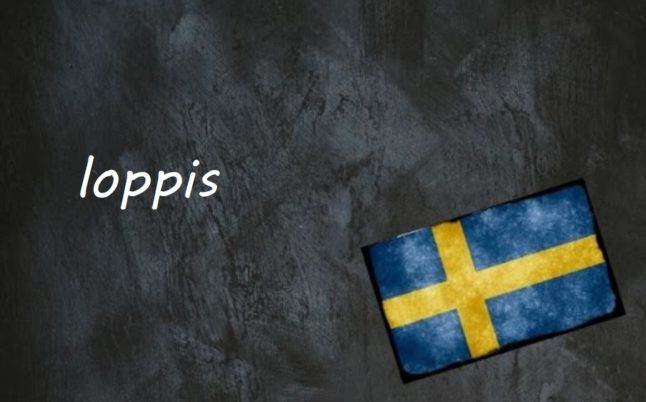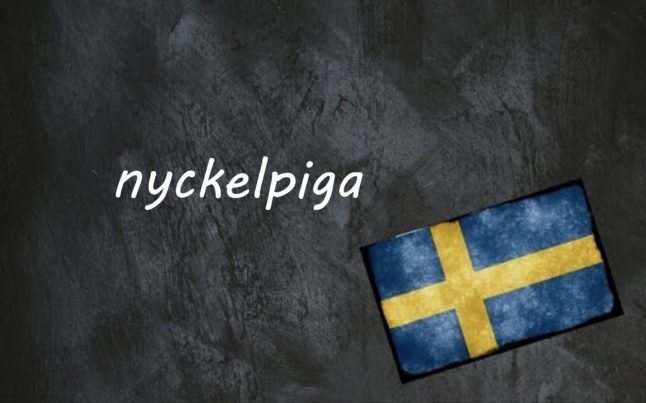Loppis is the usual Swedish word for a flea market, and these are a hugely popular way to spend sunny weekends as people set up makeshift stalls to buy and sell secondhand items, crafts, and more at bargain prices.
It’s common for an apartment block or entire neighbourhood to get together and organise a loppis, or you can head to many town squares or streets to go loppis-hunting at a weekend. There are several websites which keep track of as many loppisar as possible.
It’s not hard to see why Swedes love them so much: in summer months, loppisar take place outdoors and so allow visitors to make the most of the season; the focus on re-using is eco-friendly; the low prices are always a bonus in pricey Sweden; and then there’s the chance of finding a great vintage accessory or piece of furniture.
- Don’t miss any of our Swedish words and expressions of the day by downloading our app (available on Apple and Android) and then selecting the Swedish Word of the Day in your Notification options via the User button
The full term is loppmarknad, or lopptorg amongst Swedish speakers in Finland, but as we’ve mentioned before in our word of the day articles, it’s common in colloquial Swedish to shorten words by knocking off the final syllable or two and adding the suffix -is, hence loppis.
To say ‘at a flea market’, you use the preposition på, for example ska vi gå på loppis? (shall we go to a flea market).
The longer word loppmarknad comes from a direct translation of the US English term ‘flea market’, since en loppa is a flea. This is a nod to the fact that the markets sell secondhand clothes and furniture, and that historically, some people looked down on these and claimed they were full of fleas.
You can also use the word loppfynd (‘flea market find’ or ‘flea market bargain’) to refer to the treasures you track down at a loppis, and a bakluckeloppis (literally a ‘car boot flea market’) is a car boot sale, where instead of stands, items are sold straight out of people’s cars.
It’s not to be confused with other compound words which contain lopp and derive from the word ett lopp (‘a track’ or ‘a run’), such as maratonlopp (a marathon race) or well-known races including Vasaloppet and Lidingöloppet.
Jag har köpt den på loppis.
I bought it at a flea market.
Jag vill sälja mina gamla kläder på loppis.
I want to sell my old clothes at a flea market.
Villa, Volvo, Vovve: The Local’s Word Guide to Swedish Life, written by The Local’s journalists, is available to order. Head to lysforlag.com/vvv to read more about it. It is also possible to buy your copy from Amazon US, Amazon UK, Bokus or Adlibris.



 Please whitelist us to continue reading.
Please whitelist us to continue reading.
Member comments